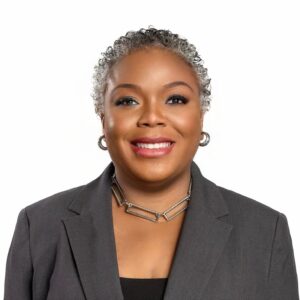Sex and Intimacy in the Nursing Home
| IN THE NURSING HOME |
| Among many issues, resident privacy is key BY DOUGLAS J. EDWARDS, ASSISTANT EDITOR |
| Have you ever considered adding issues of Playboy and Playgirl to your residents’ library? How about asking your cable TV provider to offer residents “adult viewing” channels? (A recent newspaper article discusses a nursing home in Denmark that provides pornographic programming on an in-house channel “to ease resident tension.”) Have you even thoroughly discussed resident sexuality with staff? Admittedly, senior sexuality is an uncomfortable subject for many. Our society equates sex with youth, so we don’t expect seniors to be sexually active-or even to have sexual desires. But today’s seniors-whose procreative drive fueled the baby boom-live in the same sexually saturated culture as the rest of us. And the need to be touched and held, and to feel loved, does not diminish with age. “We never lose the joy of touch,” notes Mark Steege, LMSW-ACP. Steege is certified by the American Association of Sex Educators, Counselors, and Therapists, and offers training for and consultation services to facilities with populations that are not often viewed as being “sexual.” Steege observes humorously that he is especially attuned to seniors’ sexual needs because he’s 70 years old. So the first step is to make staff comfortable with talking about seniors’ sexuality. Having served as a military chaplain for 20 years, Steege appeals to the religious convictions of his audiences’ more conservative members by observing that God made humans as sexual beings. Humor helps break the ice, too, as does clearing up staff misconceptions. For example, Steege relates a story about a male resident who has an erection while being bathed by a female caregiver. The resident is not necessarily thinking about being sexual with her; rather, his genitals simply could be having a normal physiologic reaction to being touched. Similarly, one cannot assume that two male residents who frequently hold one another are in a homosexual relationship; the men could simply be reaching out and touching each other in a loving way, in contrast to the poking, pulling, and prodding that are part of many nursing home residents’ daily routines. (For a detailed perspective of residents who identify as gay or lesbian, see Nursing Homes, August 2001, p. 40.) When staff can come to appreciate the need for seniors to be sexual and be touched, several issues then need to be addressed-one of the biggest being residents’ right to privacy. Minding Their Own Business Roommates generally agree to give each other time alone in their room, but when one roommate is involved in a relationship, sometimes even residents themselves are uncomfortable with seniors’ expressing their sexuality: “There are [residents] who take exception, not necessarily because they feel that their private space is being violated, but because they don’t necessarily agree with the fact that someone of age and infirmity is involved in a relationship,” explains Dessel. Even if a resident isn’t in a relationship, says Dessel, he/she might desire private time to view sexually explicit material. The issue of resident relationships, however, is a more complicated issue than residents’ masturbating in their rooms during their own private time. Interacting with residents throughout the day, staff inevitably will learn about these relationships, but Dessel notes, “It’s not important that they know the intimate details.” At the Hebrew Home, the level of staff involvement depends on the residents’ level of cognitive awareness. When the residents in the relationship are alert and oriented, staff involvement is minimal, unless the relationship is imposing itself on the broader resident community. When one or both of the residents have cognitive impairments, staff involvement increases: “They are basically making a clinical assessment about consent, mutuality, and the safety and well-being of the couple,” says Dessel. “They don’t necessarily have to know if there is actual intercourse.” If staff happen to encounter residents in a sexual situation in an appropriate setting (e.g., one of their rooms), and the residents are known to be in a relationship, Hebrew Home caregivers are expected to excuse themselves but check back later to make sure everything is okay. If the couple is not known to be in a relationship, a quick assessment to ensure that no one is there against his/her will is important, as is letting the charge nurse or social worker know about the situation so that other staff members can be alerted, and then checking on the residents later. While staff are informed when residents are in a relationship, families are not necessarily notified. When mentally competent residents are involved, it’s up to the residents themselves to tell their loved ones, says Dessel, although she encourages residents to share relationships that bring them joy and relieve loneliness with their families. The Hebrew Home does notify families of residents with cognitive impairments when they are in relationships, but Dessel emphasizes that the way the family is approached is key. She holds the view that the facility is informing the family of the situation, not requesting permission for the resident to be in the relationship. She points out that even if residents have Alzheimer’s disease and cannot communicate verbally, they still can indicate their choices; if two residents are drawn together and obviously enjoy their time together, the facility and families cannot simply dismiss their relationship as an outgrowth of dementia. Taking this view, the Hebrew Home works with families as partners in care to address these often-sensitive situations. The facility also informs a family if someone from outside the nursing home community is involved with a resident. Can a facility provide residents with so much privacy that the opportunity for abuse develops? Dessel doesn’t think so. She says that residents are constantly interacting with caregivers, who will notice if something is wrong, and the more cognitively aware residents can say if they are being hurt in some way. Covering All Aspects Providing an environment that allows seniors to express themselves in sexual and intimate ways is not easy for many facilities, and probably never will be. Says Dessel: “There is no formula. There is no science. We’re all new at this in the sense of trying to recognize and sanction the sexual rights of residents in long-term care.” But facilities are not new to addressing complicated care issues. With the right investment of time and resources, nursing homes can make another element of life once again a pleasurable experience for residents. NH |
| To comment on this article, please send e-mail to edwards0203@nursinghomesmagazine.com. |
Resources
|
I Advance Senior Care is the industry-leading source for practical, in-depth, business-building, and resident care information for owners, executives, administrators, and directors of nursing at assisted living communities, skilled nursing facilities, post-acute facilities, and continuing care retirement communities. The I Advance Senior Care editorial team and industry experts provide market analysis, strategic direction, policy commentary, clinical best-practices, business management, and technology breakthroughs.
I Advance Senior Care is part of the Institute for the Advancement of Senior Care and published by Plain-English Health Care.
Related Articles
Topics: Activities , Articles











